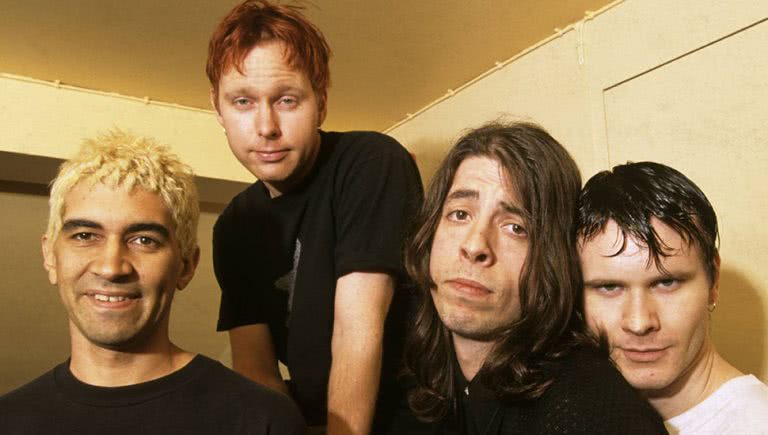Foo Fighters are bringing back the original designs of two of their coveted 1995 tour shirts to benefit the #SaveOurVenues campaign.
If you, like me, spend all your time on eBay, in a moral and financial quagmire, tempted to drop $300 on a coffee-stained 80s Cocteau Twins tour shirt in the hopes that it will fill the void, this should offer some relief.
The Fooeys will be bringing back their OG ‘Rosewell Alien Design’ print in two shirt variations. The shirts were originally printed in celebration of the band’s shows on February 23, 1995 at Jambalaya Club in Arcata, California and June 3, 1995 at Kong’s College in London.
Proceeds raised from sales will benefit the National Independent Venue Association’s #SaveOurStages campaign in the US. An initiative that aims to protect independent music venues that have been impacted by the coronavirus pandemic.
The limited-edition t-shirts feature an alien head printed in glow-in-the-dark ink. All proceeds from the UK shirts will be donated to #SaveOurVenues, whilst all proceeds from the US shirts will go to #SaveOurStages.
You can cop your own by heading here.
Love Music?
Get your daily dose of metal, rock, indie, pop, and everything else in between.
View this post on Instagram
Earlier this week, the music world mourned the loss of Trini Lopez, the singer and guitarist who also acted in Robert Aldrich’s 1967 film The Dirty Dozen. Lopez passed away on Tuesday of complications from coronavirus. He was 83.
Dave Grohl took to the Foo Fighters Twitter account to pay his respects to Lopez, thanking him for “unknowingly” shaping the sound of the Foo Fighters. Sharing that he purchased a 1967 Trini Lopez signature guitar while he was still in Nirvana — a guitar he still relies on to shape the Fooeys signature sound.
“Today the world sadly lost yet another legend, Trini Lopez. Trini not only left a beautiful musical legacy of his own, but also unknowingly helped shape the sound of the Foo Fighters from day one,” he wrote.
“Every album we have ever made, from the first to the latest, was recorded with my red 1967 Trini Lopez signature guitar. It is the sound of our band, and my most prized possession from the day I bought it in 1992. Thank you, Trini for all of your contributions.”


































